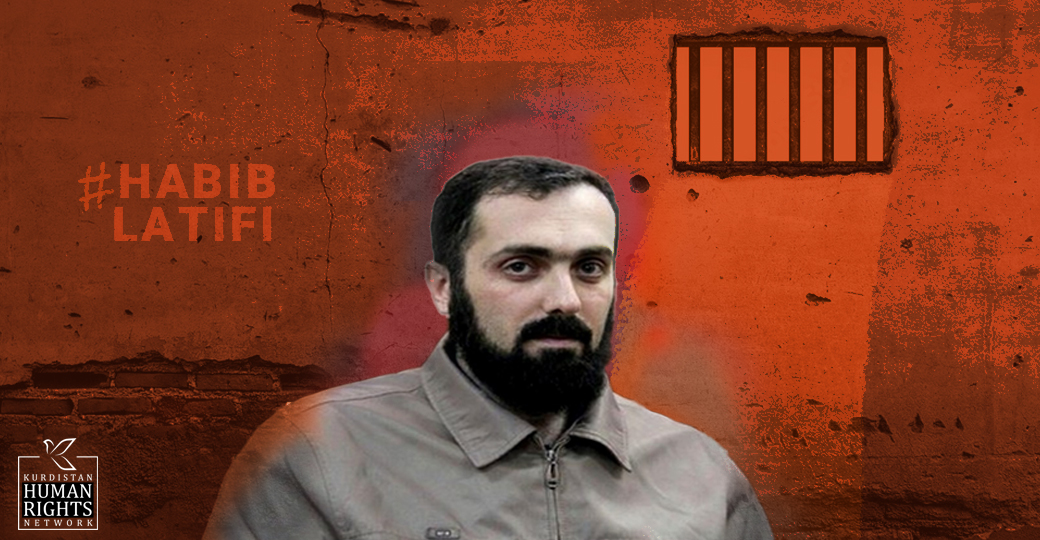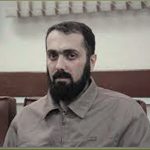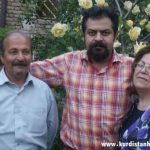At the time of his arrest, Habib Latifi was a final year industrial engineering student at Ilam University.
Arrest
Latifi was arrested on 24 October 2007 by the Ministry of Intelligence on Adab Street in Sanandaj, Kurdistan Province, and taken to the detention facility of the ministry in the city.
During his time in solitary confinement at the detention centre, he was subjected to torture to extract forced confessions.
Mehdi Molla-Vali (Hojjat Molla-Vali), a then-official of the Kurdistan Province’s Ministry of Intelligence Office, played a crucial role in his torture.
Latifi was eventually transferred to Sanandaj Central Prison after about three months.
Judicial Process
In June 2008, with an indictment issued by Amjadi, the Sanandaj Prosecutor, Latifi was tried on charges of “enmity against God” (moharebeh) through “effective cooperation and support” for the Kurdistan Free Life Party (PJAK) and other opposition groups.
His trial took place on 30 June 2008 in Branch One of the Islamic Revolutionary Court of Sanandaj, presided over by Judge Hassan Babaei, which sentenced him to death.
On 29 January 2009, the death sentence was upheld by Branch Four of the Kurdistan Provincial Court of Appeals.
According to the Criminal Procedure Code, severe sentences such as the death penalty and life imprisonment can only be appealed and reviewed at the Supreme Court. However, at the time of issuing the death sentence for Habib Latifi, contrary to the usual practice, the General Board of the Supreme Court had approved a unified procedure ruling No. 703-09/05/1386 (31/07/2007). According to this ruling, the jurisdiction for reviewing appeals against any kind of verdict issued by the Revolutionary Courts was assigned to the provincial appeal courts. During this period, some of the heavy sentences of Kurdish political prisoners, such as Ehsan Fattahian, Zeynab Jalalian and Habib Latifi, were reviewed in the provincial appeal courts. This unified procedure ruling was later annulled due to widespread objections by legal experts and defence lawyers. Consequently, the Supreme Court was once again recognized as responsible for reviewing heavy sentences issued in the domain of Hudud (punishments prescribed by the Quran). However, this issue did not lead to the annulment of the confirmation by the Kurdistan Provincial Appeal Court regarding Habib Latifi’s death sentence, nor did it result in a re-examination of the case by the Supreme Court.
Despite numerous flaws in the case, Latifi’s defence lawyer’s request for a retrial was rejected by Garousi, the head of the Kurdistan Provincial Court.
After several instances of setting and postponing the execution date due to widespread reactions from the international community and human rights organisations, his death sentence was ultimately commuted to life imprisonment in 2017.
Current Status
Latifi is currently being held in Sanandaj Central Prison, suffering from the long-term effects of harsh prison conditions and prolonged deprivation of medical care and medical leave.
Due to the torture during his detention at the Ministry of Intelligence detention centre in Sanandaj and the prolonged imprisonment, he has developed various illnesses, including hernia, irritable bowel syndrome (IBS), and asthma.
Despite official confirmations from the Kurdistan Provincial Forensic Medicine Department on two occasions, years apart, stating that he cannot endure imprisonment and that continued detention poses a life-threatening risk, the Kurdistan Provincial Office of the Ministry of Intelligence has persistently prevented his medical leave, contrary to the law.
Additional Information
– After the case was referred to the Enforcement of Judgements Office of the Sanandaj Prosecutor’s Office, 25 December 2010 was set as the execution date and was communicated to his defence lawyer, Saleh Nikbakht. The public announcement of Latifi’s imminent execution sparked widespread reactions, leading numerous people and Kurdish activists to gather in front of Sanandaj Central Prison on the night leading to 25 December 2010, demanding the halt and cancellation of the execution. Subsequently, the Kurdistan Provincial Security Council decided to stop the execution. Despite this, from 2010 to 2013, the Sanandaj Prosecutor’s Office repeatedly scheduled execution dates, each time halted and postponed due to concerns over public reaction.
– After the execution halt decided by the Provincial Security Council, a large number of people visited Latifi’s family home on the evening of 26 December 2010 to congratulate them. Security forces attacked the family’s home, arresting most family members and some guests.
– Amjadi, the then-Sanandaj Prosecutor, was adamant about executing the death sentence and personally made several visits to the Forensic Medicine Department to expedite the execution process.
Notes:
1. Article 279 of the Islamic Penal Code: “Moharebeh (enmity against God) is defined as drawing a weapon with the intention of killing, stealing from, or intimidating people in a way that causes insecurity in the environment.” According to Article 282 of the Islamic Penal Code, “if a person commits the crime of moharebeh, they will be sentenced to crucifixion, execution, amputation of the right hand and left foot, or exile, at the discretion of the judge.”
2. The Kurdistan Free Life Party (PJAK) was established in 2004 in the Qandil Mountains along the border of Iraqi Kurdistan with Iranian Kurdistan. This party follows the ideas of Abdullah Öcalan, the imprisoned leader of the Kurdistan Workers’ Party (PKK), and bases its activities on the paradigm of a “democratic and ecological society based on women’s freedom”.
According to the party’s charter, PJAK considers the establishment of democratic confederalism and a political form of democratic self-governance for organising people to build a “democratic nation” as one of its fundamental goals. PJAK also participated in the establishment of the East Kurdistan Democratic and Free Society (KODAR). The headquarters of this party is in the mountainous areas between Iraqi Kurdistan and Iranian Kurdistan.





